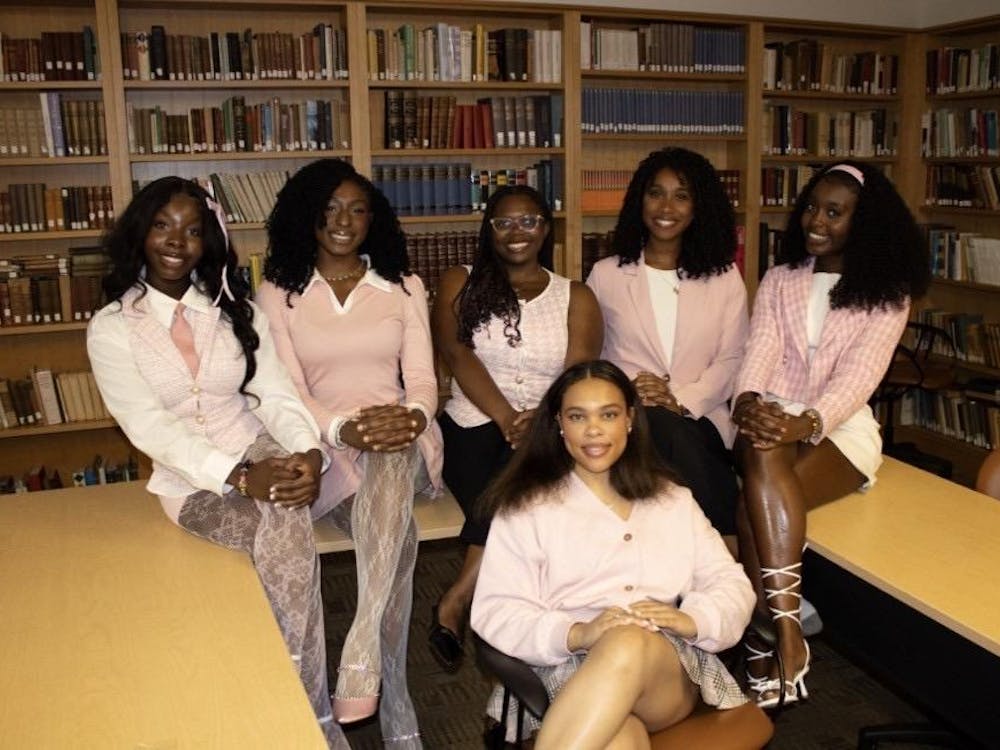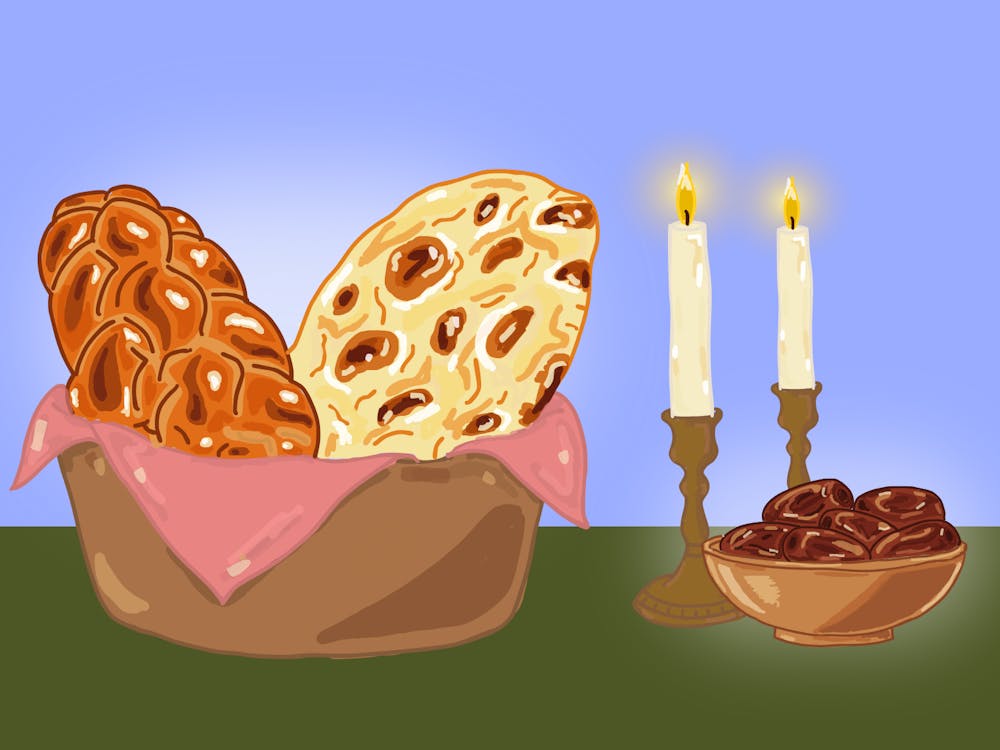Billy Hill Jr., a 1977 University graduate, collapsed approaching the finish line of the annual Richmond Marathon and died of a massive heart attack in 1981. A year later, his fraternity brothers in St. Anthony Hall rallied together in his memory and started the first-annual philanthropic event on Grounds.
Nineteen years later, the St. Anthony Hall fraternity brothers still celebrate the memory of their fraternity brother by holding the Billy Hill 10K Relay Race to benefit the American Heart Association.
At 12:30 p.m. Saturday, various Greek and non-Greek seven-member teams will line up in the Mad Bowl to try to out-sprint one another. Each of the seven people on the team will run approximately one mile before passing the baton to the next team member. The entire team runs a total distance of 10K.
But as exhausting as this sounds, the fraternity brothers will be racing in the name of more than just inter-fraternity/sorority competition - they will commemorate the memory of Hill, who died at the age of 26.
The yearly race commemorates Hill's achievements, said his father, Billy Hill Sr.
The support Hill's fraternity brothers showed for one another in the face of Hill's death lives on through the fraternity's cooperation to organize the event.
Peter Pettit, fourth-year Commerce student and chairman of the Billy Hill 10K, said he had help organizing the event from his co-chairs, Nate Collier and Douglas Andrew, and the St. Anthony Hall fraternity brothers.
"Everyone in the house is pitching in. That's how we're pulling it off," Pettit said. "The brothers and the pledges make the event what it is."
Pettit added that the history of the race traditionally has garnered support from the University community. The 15-year history of the event makes it a highly supported philanthropic endeavor on Grounds.
Originally, the Billy Hill 10K was an event endorsed by the Inter-Fraternity and Inter-Sorority Councils that consisted of three parts: a fraternity race, a sorority race and an open race. The traditionally Greek race has been reduced to a two-part men and women's race in which the majority consists of Greek teams, but competitors also include law students, graduate students, ROTC members and independent teams.
Last year, the event was moved from fall to spring in conjunction with the deferral of rush two years ago. Support faltered despite fundraising due to the logistics of the race, Pettit said.
Pettit added that the increase of other philanthropic events has strained support for the race. He would like to reinstate the tradition of monetary support, he said.
"In recent years [everyone pitching in] is not the case. Every organization has events, so less money is available and it is harder to get people involved. We're competing for the same resources," he said.
Fundraising comes from a combination of corporate sponsors, Hall alumni, current Hall members' families, entry fees for house activities, t-shirts and Bar Night drink specials at local restaurants.
Pettit said in 1990 the event raised a record $27,000 for the American Heart Association. But now as local business' donations have been dispersed through other charity events and with the loss of traditional sponsors such as Domino's Pizza, event earnings will approach $8,000 to $15,000.
He added that donations did not come primarily from large donors but from getting as many people involved as possible. Even $15-20 donations were a substantial portion of the event's fundraising. Fraternity brothers received these smaller donations by speaking with local residents in an attempt to communicate the importance of the event, Pettit said.
Richard Schultz, Area Director for the Charlottesville/Albemarle American Heart Association, commended the group for learning leadership skills to organize the event and for benefiting the community through fundraising.
"It's good for our community because American Heart Association's number one priority is to fund scientific research within the University and community," Schultz said. "The University has a cardiovascular research center, which receives the funding."
He added that the American Heart Association recently announced that due to last year's fund raising, the University's cardiovascular research center received over $1 million from the Heart Association.
Aside from raising money for the American Heart Association, participants have the chance to fatten their own wallets and egos.
The winning team wins a $250 gift certificate from New Balance and quintessential bragging rights.
The second place team wins the right to lounge in foldout beach chairs, complete with a zipper cooler built in each seat. The third place team receives a travel kit. All runners get a t-shirt and gift bag.
The Hall will have entertainment during and after the race. A truck-full of New Balance shoes, clothes and Domino's promotions also will be in the Mad Bowl.
"We want more people to get involved in it," Pettit said. "This used to be such a big part of the University and community, and we want to reestablish that tradition. [We want to] make it fun for those involved in the competition of the race."
Pettit said an important part of the day entails the participants understanding the meaning of the race and Hill's story.
Schultz said the participants' tradition of brotherhood and sisterhood continues.
"It's fun to see the sororities' and the fraternities' seven-member teams," Schultz said. "They really get into it."
The event begins at 12:30 p.m. Registration and the women's race begins at 1 p.m., which is followed by the men's race at 2 p.m.
"It's gonna be great," Pettit said.






